Menopause
Life after 45 is a fantastic journey filled with experience and wisdom. It's also a time when your body changes, and that includes your vaginal health. Here at VJJ Health, we understand these changes and want to empower you with knowledge about what to expect and how you might help yourself manage them. Whether you want to maintain a ‘youthful’ vagina and prevent commons issues or help prevent those recurring UTI’s, we’ve got you covered.
Common Vaginal Issues After 40
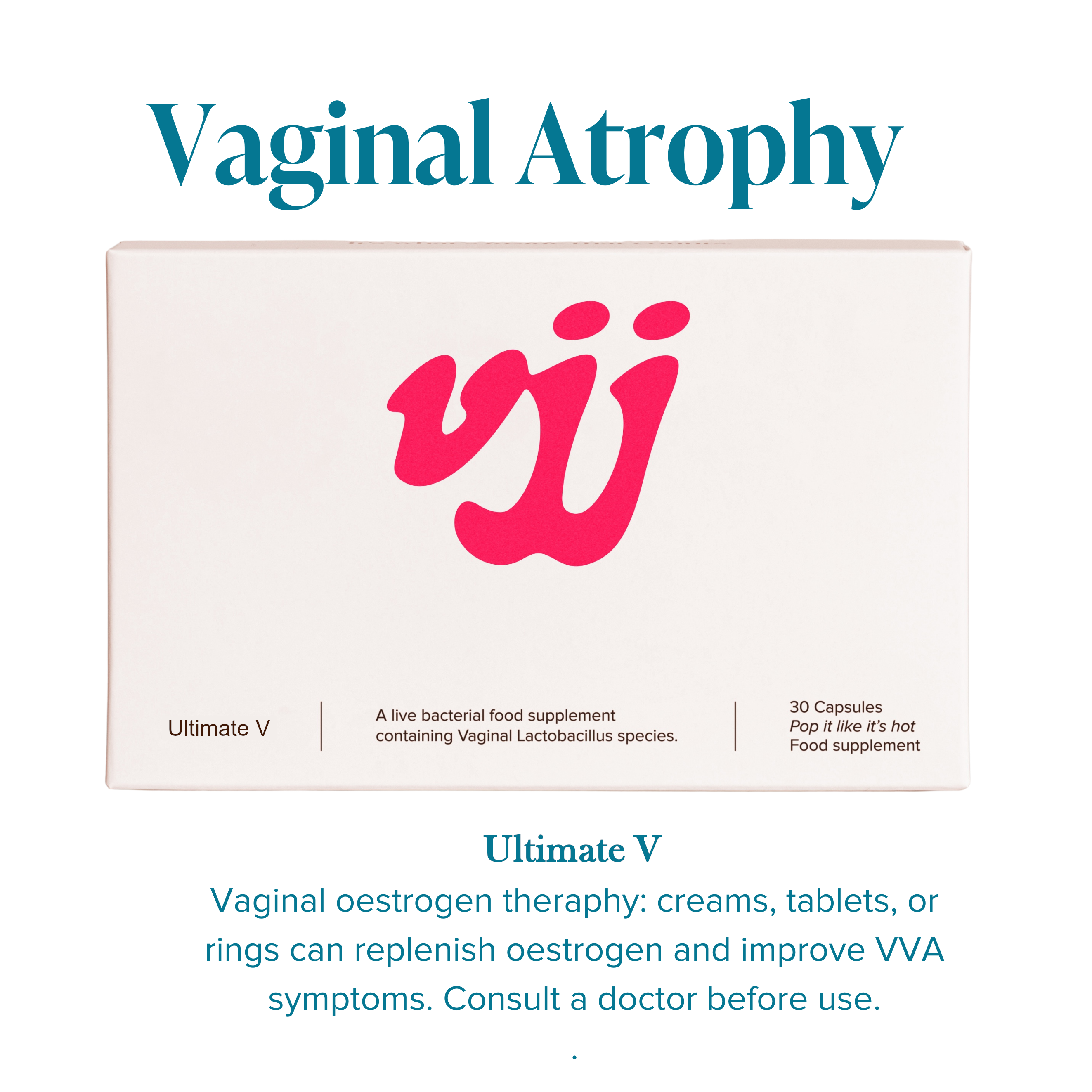
Vaginal Atrophy
Vulvovaginal Atrophy (VVA) happens to all women when reduced oestrogen thins vaginal tissues and reduces natural vaginal lubrication, leading to symptoms like vaginal dryness, irritation, and discomfort. This is often treated with Hormone Replacement Therapy (HRT) or topical oestrogen (like Vagifem or Gina). This makes an environment where the protective bacteria can thrive to look after your vaginal health. Ultimate V contains the right blend of good bacteria for vaginal health.
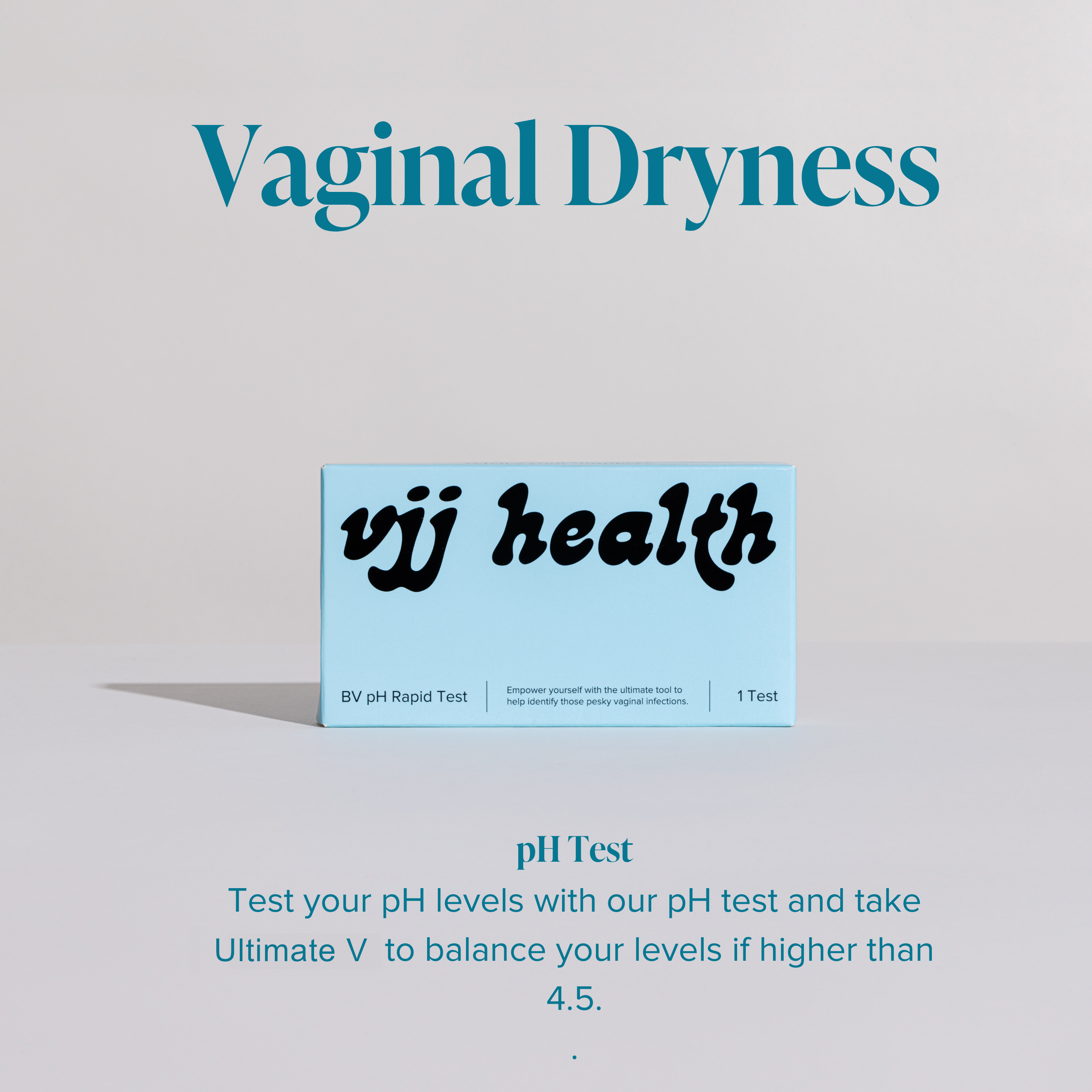
Vaginal Dryness
Vaginal dryness is caused by a decrease in oestrogen during perimenopause and menopause which thins the vaginal wall and slows the production of mucus which lubricates the vagina.
Symptoms such as burning, itching, and pain during sex are typical of vaginal dryness. Indicators that you are entering menopause can be seen by taking a vaginal pH test. If it is higher than 4.5, then either you have a vaginal infection (usually BV) or your oestrogen level is below which can support a healthy acidic vaginal microbiome.
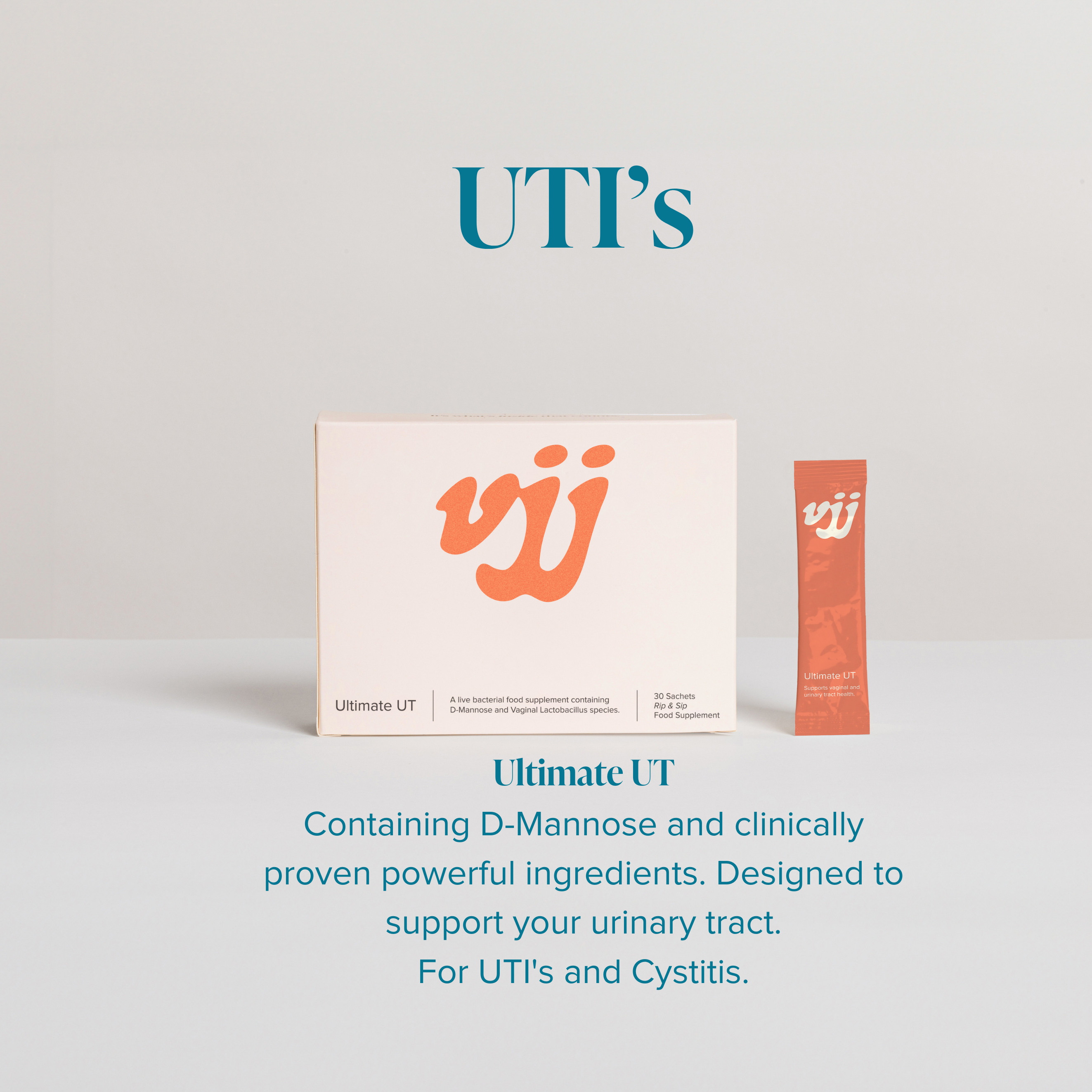
UTI's
An increase in Urinary Tract Infections (UTIs) is a common consequence of vaginal atrophy in menopause. Many women experience more frequent urinary tract infections after 45. This is partly due to changes in your muscles and urethra due to a reduction in oestrogen, and partly due to the loss of your protective Vaginal Microbiome.
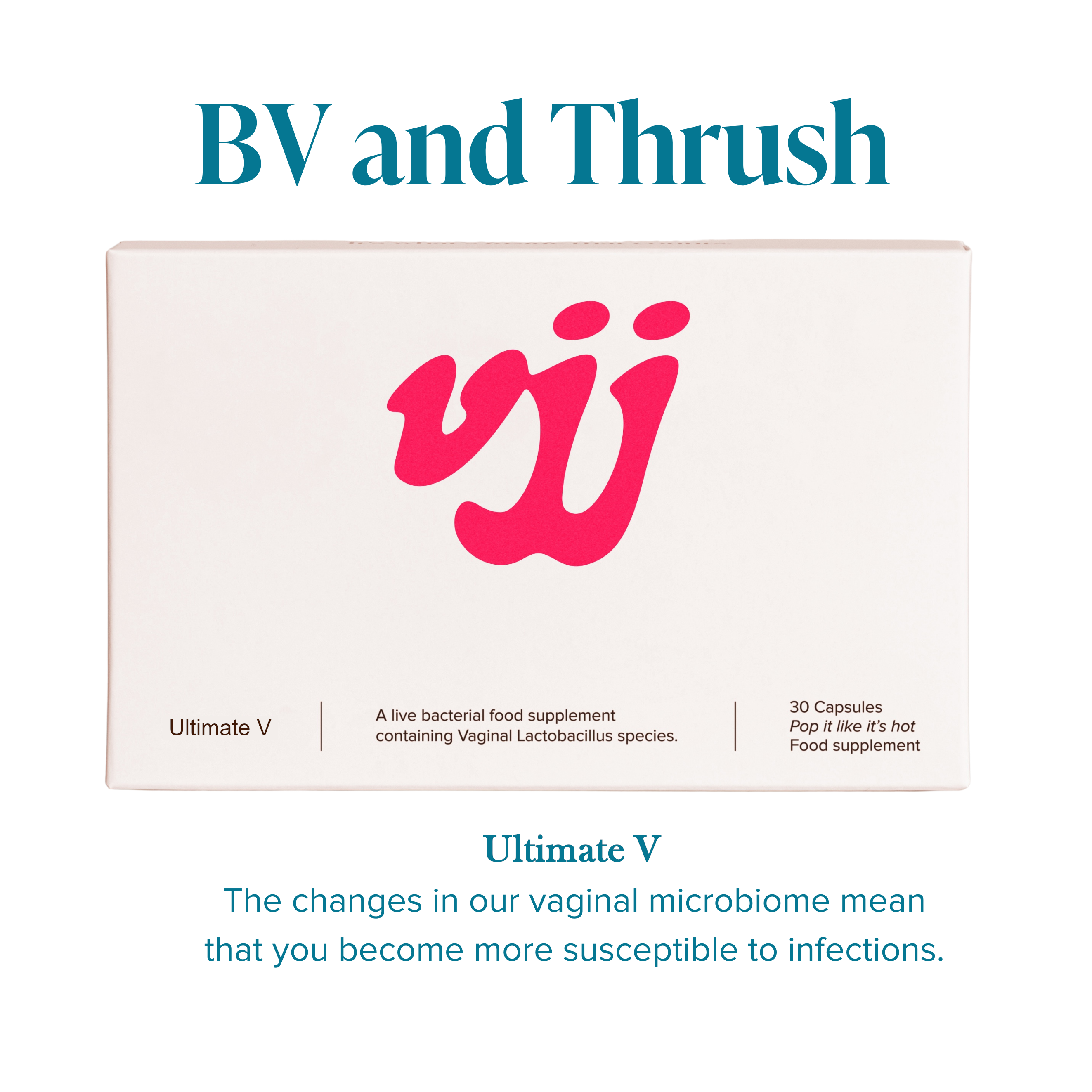
BV and Thrush
Changes in oestrogen levels lead to a loss of the important vaginal mucosa which lubricates and comforts your vagina and is home to your protective Vaginal Microbiome. This can allow bad microbes like the ones that cause Thrush and Bacterial Vaginosis (BV) to thrive and cause vaginal infections. Replenishing your vagina with the right species of good bacteria can help maintain a healthy environment making it harder for the bad microbes to thrive.
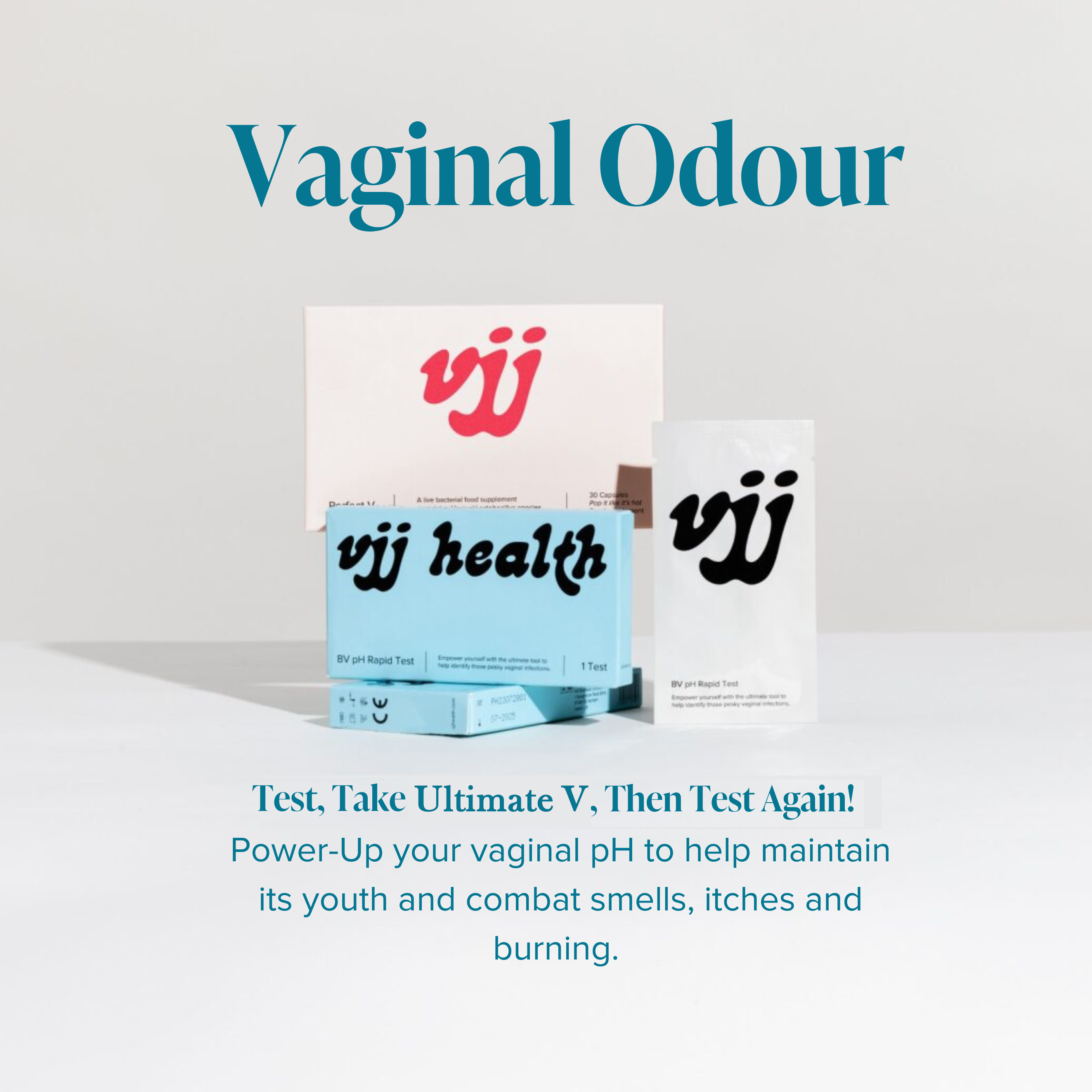
Vaginal Odour
When you come into menopause, your oestrogen levels reduce. One of the consequences of this is something called 'Vaginal Atrophy' or Genitourinary Syndrome of Menopause (GSM). This is where you begin to experience vaginal dryness, discomfort and perhaps an increase in vaginal infections like Thrush or UTIs. You may experience a change in your natural smell, which is normal, but to eliminate any unpleasant odours maintain your vaginal pH balance.
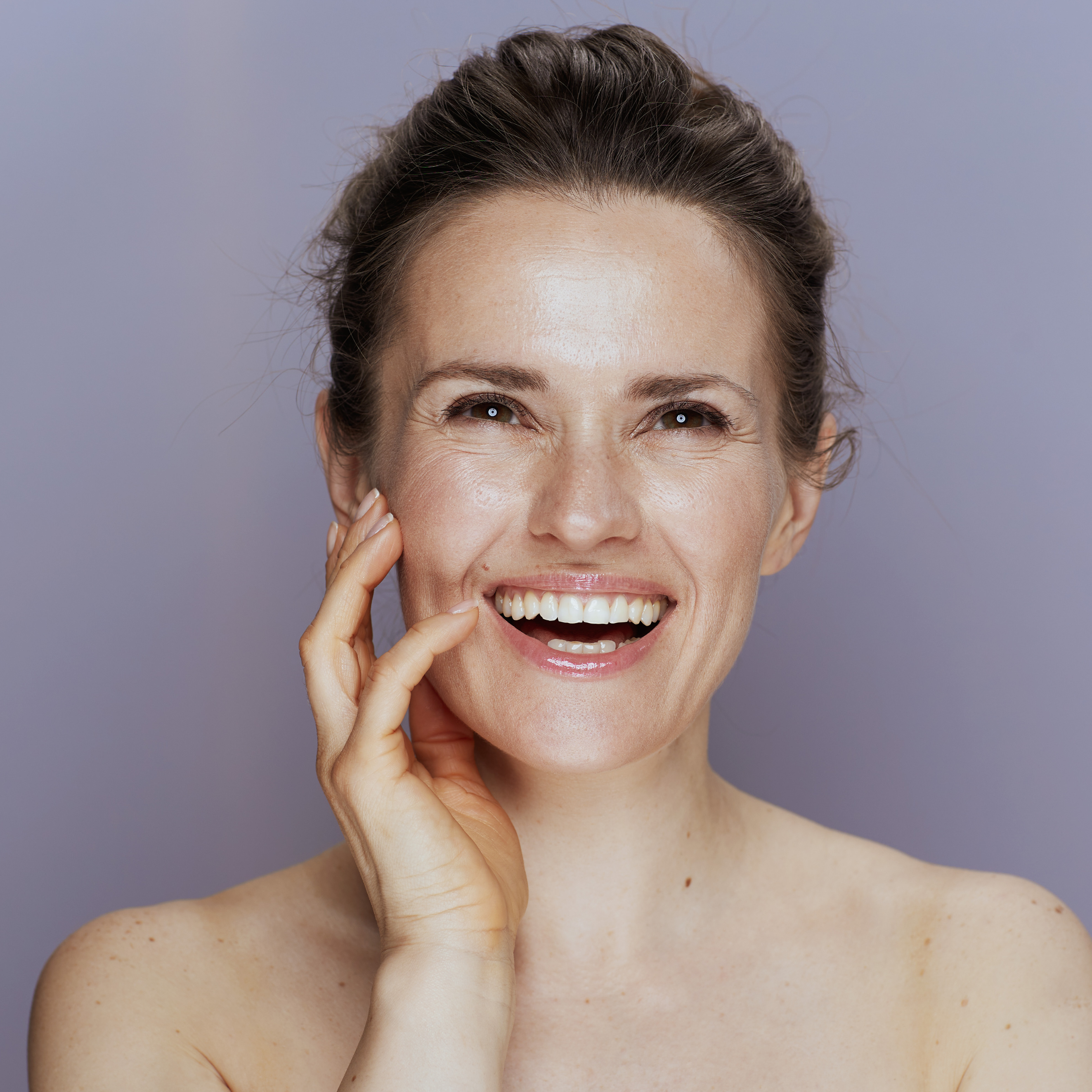
For more articles on the menopause visit our Health Hub. Or why not read our article Vaginal Health in Menopause.
Ask Dr Jo
Menopause is when your hormone balance changes. Women experience a drop in the level of Oestrogen which maintains many of the processes that influence your vagina. The changes often cause vaginal dryness and discomfort, changes in vaginal odour, pain during sex and an increase in urinary issues such as UTIs and urge incontinence.
Vaginal moisture and lubrication is made by a special layer of cells in the vagina called the 'vaginal mucosa'. This layer of cells is maintained by the presence of Oestrogen. When your oestrogen levels reduce during menopause, your vaginal mucosa thins and begins to disappear which makes your vagina dry.
Vaginal Atrophy is a not very nice term for the collection of changes that happen to your vagina when the level of oestrogen drops during menopause. It can include vaginal dryness, the urge to pee more often, general discomfort, pain during sex and often an increase in the number of Urinary Tract Infections (UTIs).
The vaginal is home to a protective microbiome of good Lactobacillus bacteria. They live in the layer of cells called the vaginal mucosa that produce mucus and lubrication where they prevent common vaginal and urinary tract infections like Thrush and UTI's. As your oestrogen level reduces, your vaginal mucosa thins and the 'home' for these good bacteria disappears making you more susceptible to UTIs.
Most of the issues of Vaginal Atrophy can be improved by taking oestrogen, either as HRT or as a topical oestrogen directly into your vagina. There is published evidence that taking a daily Lactobacillus probiotic like Ultimate V can improve your vaginal health in menopause, helping prevent infections and improving lubrication.
The loss of oestrogen during menopause cause the natural lubrication of the vagina to dry. This means that sex can be painful. If this is the case, you can use a pH balanced lube to help. See your doctor about taking HRT or a topical oestrogen (directly into your vagina) which will help the important cells which produce lubrication to function properly.
Some women are unable to take oestrogen due to oestrogen sensitive breast cancer. There are a number of alternative treatments and you should discuss these with your GP or clinical team. You may wish to take a specific vaginal probiotic like Ultimate V which will help to maintain your protective vaginal microbiome.



